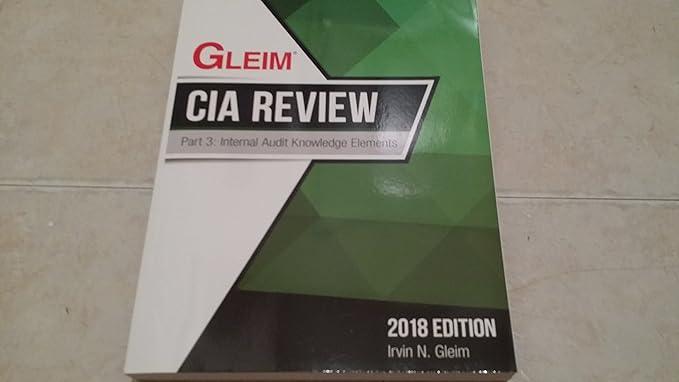Question
(3 points for the legal issue, 4 points for the correct rule of law, 5 points for correct/complete analysis, and 3 points for the correct
(3 points for the legal issue, 4 points for the correct rule of law, 5 points for correct/complete analysis, and 3 points for the correct conclusion
1. Able, a car dealer, sold a car to Carr. That car had a 180-day warranty stating that Able would repair any malfunction of that car within that 180-day period. The contract was a valid contract, with those terms in it. Able made a valid assignment to Baker of his contract to receive monthly purchase payments from Carr. After the assignment the car malfunctioned within that warranty period. Able had quit the auto business entirely and refused to repair the car. May Carr withhold payments from Baker to offset the cost of needed repairs? Do a complete legal analysis of this.
2. Business Law Professor enters into a contract with University of Phoenix to teach an online business law class to accounting majors. The contract is for the summer of 2019 and pays $10,000. Law Professor decides that he can find a practicing attorney to teach that class for $5000. Therefore, he subcontracts that class to Tom Reed. Phoenix finds out about the subcontract and refuses to let Reed teach the class. Reed sues Phoenix University for breach of contract. The contract does not restrict the right to have someone else teach the class and be paid for it. Will Reed win or lose?
3. Mother contracts with Lawyer to provide legal services for her son, who is being prosecuted for drug possession, and agrees to pay Lawyer a flat fee of $5,000. Mother tells Son about this arrangement and Son forgoes hiring another attorney. On the date of the first court appearance, Lawyer does not show up, and later calls Mother saying that he will not be performing the legal services unless Mother pays him an additional $10,000. Son sues Lawyer for breach of contract. Will son win that lawsuit and why? You must do a full legal analysis.
There are four m/c - t/f questions. Each is worth 3 points for a total of 12 points.
1. A statute of frauds will likely cover all of the following except:
a. I agree to sell you an empty lot.
b. ABC Mortgage Co. agrees to grant me a mortgage
c. You agree to sell me an apartment
d. I agree to let you pick tomatoes on my farm for the next three months.
2. Which of the following statements is not true?
a. If it's at all possible for the contract to be performed within one year, then the contract typically won't fall within a statute of frauds.
b. A statute of frauds won't apply unless performance can't take place within one year of the making of the contract.
c. A statute of frauds won't apply unless the terms of the contract specifically preclude performance within one year.
d. If a party already fully performed the contract, then a statute of frauds won't apply.
e. The one-year time period is measured from the date a party starts performance of the contract.
3. As a general rule, contract duties can be delegated.
a. True
b. False
4. Intended beneficiaries can sue to enforce a contract.
a. True
b. False
Step by Step Solution
There are 3 Steps involved in it
Step: 1

Get Instant Access to Expert-Tailored Solutions
See step-by-step solutions with expert insights and AI powered tools for academic success
Step: 2

Step: 3

Ace Your Homework with AI
Get the answers you need in no time with our AI-driven, step-by-step assistance
Get Started


